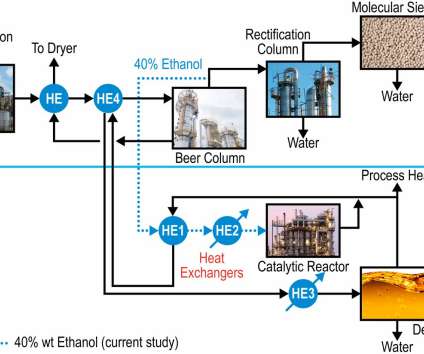Purdue analysis finds H2Bioil biofuel could be cost-competitive when crude is between $99–$116/barrel
Green Car Congress
JUNE 5, 2012
Their analysis is published in the journal Biomass Conversion and Biorefinery. The break-even crude oil price for a delivered biomass cost of $94/metric ton when hydrogen is derived from coal, natural gas or nuclear energy ranges from $103 to $116/bbl for no carbon tax and even lower ($99–$111/bbl) for the carbon tax scenarios.

















Let's personalize your content